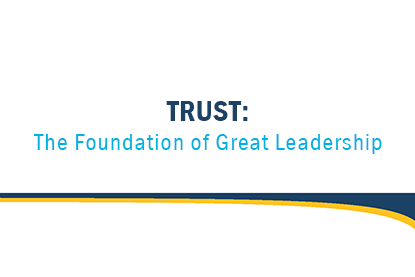

By definition, a skill is “the ability to do something well.” While the term leadership has almost as many definitions as there are authors, we at The Center for Leadership Studies will use our definition for the purposes of this article: leadership is an attempt to influence.
So, if we mash those two things together, a skilled leader has to be someone that is really good at influencing others. A prudent disclaimer would be that no leader is successful all the time. The best leader ever undoubtedly experienced setbacks, disappointments and failure. And if we really could identify the best leader ever, they would be the first person to tell you when they failed, what they learned from it and how it helped to mold them into the leader they have become.
“Leaders are made … and not born.”
Contact Us
Which perhaps only adds to the confusion. Because people get promoted into positions of leadership, right? Organizations put those people in charge and make them leaders, so how can leadership be a skill?
The fact of the matter is that being promoted into a position of leadership does not make you a skilled leader! It may place you on a higher rung of the hierarchy with managerial duties and responsibilities, but it does not mean you are really good at influencing others. It is akin to the process we follow with elected government officials. They campaign, we vote, and they assume a role of consequence. How well they perform in that role is a function of the skills they exhibit and have the capacity to develop when they are actually governing, as opposed to campaigning.
As you might imagine the list of skills that drive effective leadership is vast but can be at least partially captured by the following list of leadership competencies:
How do leaders develop and enhance these skills? Practice, plain and simple. They place themselves into situations where leadership can make a difference, and they engage.
More often than not, the effectiveness of a leader is a function of their ability to model and drive accountability within their sphere of influence.

Accountability must be an art because it certainly isn’t a science! And while it is only the tip of the iceberg, there is one thing in particular effective leaders get when it comes to the dynamics of accountability: You can’t hold people accountable for things they don’t know how to do!
Consider that statement in the context of the Situational Leadership® Model. The first question a Situational Leader considers is, “Is this person performing (this particular task) at a sustained, acceptable level?”
If the answer to that question is “no,” outcomes accountability rests with the manager. Period! It is truly that simple. An individual who is learning or developing (regardless of their task-related confidence, commitment or motivation to perform) cannot legitimately be held accountable for delivering desired results. They can, however, be held accountable for taking the steps they have agreed to take to improve, learn and expand their existing base of experience and skill.
Managers who are unwilling to take responsibility for setbacks, delays or stumbling blocks themselves can rarely (if ever) build a culture of accountability with their team. Leaders who answer for unforeseen deviations from the anticipated path are the ones who model performance ownership for those around them.
Accountability starts early! It is far less about managing the tension of a difficult conversation when a project has gone off the rails, than it is about what went on when it initiated. Here are building blocks effective leaders put in place to foster accountability:
The Center for Leadership Studies (CLS) is the global home of the Situational Leadership® Model. Through programs like Situational Leadership® Essentials for managers and Situational Performance Ownership® for individual contributors, CLS is helping leaders at all levels hit productivity targets, enhance employee engagement and retain key talent.
And one thing we have learned beyond a shadow of a doubt over the last 55 years is that leadership is a skill! It is a skill with identifiable fundamentals that can be isolated, practiced and improved upon! It is also a skill that can be leveraged to build a culture of personal accountability.